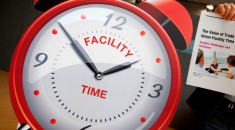The House of Lords has inflicted a triple blow to the government’s controversial Trade Union Bill.
Peers voted overwhelmingly for three amendments to the bill, on electronic balloting, facility time, and the funds used by unions for political campaigning.
The government was heavily defeated on each vote, and will now be forced to rethink its plans when the bill returns to the Commons.
UNISON general secretary Dave Prentis said: “It was great to see the Lords reject some of the attacks on unions that are in the Trade Union Bill – and I want to thank every UNISON member and branch who have helped lobby peers.
“In April the Lords will vote on the government’s attack on ‘check off’. We hope that peers will take issue with the government on that crucial issue too.
“But in the month that ministers have until that vote, there is still time for them to think again about their brutal attack on ordinary working people – and withdraw this ill thought-out and wholly unnecessary bill.”
Three amendments were tabled during the report stage in the Lords yesterday.
Peers voted by 320-181 to commission an independent review of electronic ballots for strike action – which ministers have rejected, despite calling for changes that would require a minimum turnout of 50% and backing of at least 40% of those eligible to vote.
They also voted 248-160 against a cap on facility time.
And where the bill requires Labour-affiliated union members to “opt in” to paying a levy to the party, peers voted 320-172 to apply those changes to new members only, with a 12-month transition period.
TUC General Secretary Frances O’Grady said: “This is an important result for the six million trade union members across the UK. But it’s a bad day for the government.
“It has tried to force this bill through parliament. Once again, peers have rightly held them back.
“The government needs to think again and withdraw this damaging and divisive bill.”
The Lords next considers the bill after Easter, with a second day of the report stage.

